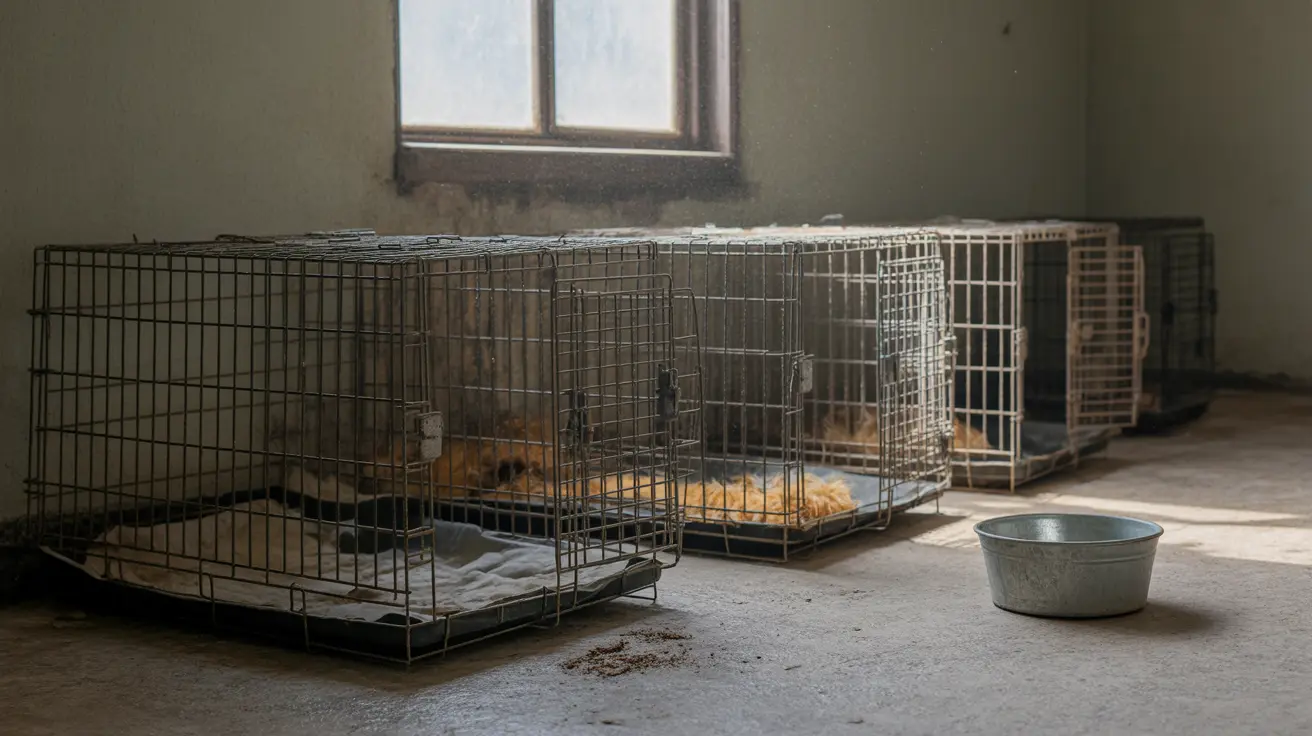When your cat starts pooping outside the litter box, it's more than just a frustrating cleanup issue – it's often a cry for help. This concerning behavior can signal various underlying problems, from medical conditions to environmental stressors. Understanding why cats exhibit this behavior is crucial for finding an effective solution and maintaining both your cat's health and your home's cleanliness.
Let's explore the main reasons behind this common feline issue and discover practical solutions to help your cat return to proper litter box habits.
Medical Causes of Inappropriate Defecation
Before assuming behavioral issues, it's essential to rule out medical conditions that could be causing your cat to avoid the litter box. Several health issues can trigger this behavior:
Digestive System Problems
Conditions like inflammatory bowel disease, constipation, or diarrhea can make using the litter box painful or urgent, causing your cat to eliminate wherever they happen to be when the need strikes.
Mobility Issues
Arthritis and joint pain, particularly common in senior or overweight cats, can make climbing into and positioning within the litter box uncomfortable. Many cats will seek out easier-to-access locations when movement becomes painful.
Age-Related Conditions
Older cats may develop cognitive dysfunction syndrome (feline dementia), leading to confusion about litter box location or proper elimination habits. Additionally, conditions like diabetes or kidney disease can increase the frequency of elimination needs.
Environmental Factors Affecting Litter Box Use
Litter Box Maintenance
Cats are naturally clean animals and may avoid dirty litter boxes. Daily scooping and weekly complete cleaning are essential for maintaining an inviting environment for your cat.
Box Location and Accessibility
The placement of litter boxes can significantly impact their use. Boxes should be:
- Away from food and water bowls
- In quiet, low-traffic areas
- Easily accessible on each floor of your home
- Away from noisy appliances or machinery
Litter Type and Box Style
Many cats have strong preferences about their litter and box setup:
- Most prefer unscented, clumping litter
- Some cats dislike covered boxes
- The box should be large enough for comfortable movement
- Some cats prefer specific litter textures
Stress and Behavioral Causes
Environmental stress can significantly impact your cat's elimination habits. Common stressors include:
- Changes in household routine
- New pets or family members
- Moving to a new home
- Construction or renovation
- Inter-cat conflict in multi-cat households
Solutions and Prevention Strategies
Address litter box issues with a comprehensive approach:
- Schedule a veterinary check-up to rule out medical issues
- Provide multiple litter boxes (one per cat plus one extra)
- Clean boxes regularly and thoroughly
- Use enzyme cleaners on soiled areas
- Consider stress-reduction tools like pheromone diffusers
- Maintain consistent daily routines
Frequently Asked Questions
What medical conditions can cause a cat to poop outside the litter box?
Medical conditions including inflammatory bowel disease, arthritis, diabetes, kidney disease, and cognitive dysfunction can cause cats to eliminate outside the litter box. Any sudden change in elimination habits warrants a veterinary examination.
How does litter box cleanliness affect a cat's willingness to use it?
Cats are extremely sensitive to cleanliness and may avoid dirty litter boxes. Daily scooping and weekly thorough cleaning are essential to maintain appropriate use.
What are the best types and placement of litter boxes to prevent cats from pooping outside?
Use large, uncovered boxes with unscented clumping litter, placed in quiet, accessible locations. Provide multiple boxes throughout your home, especially in multi-cat households.
How can household stress or multi-cat conflicts lead to litter box avoidance?
Stress from changes in routine, new pets, or territorial disputes can cause cats to avoid litter boxes. Ensuring multiple boxes in different locations and addressing inter-cat conflicts can help prevent these issues.
What steps should I take to stop my cat from pooping outside the litter box without punishing them?
Never punish your cat for inappropriate elimination. Instead, address potential medical issues, ensure clean and accessible litter boxes, reduce environmental stress, and use positive reinforcement when they use the box correctly.
Conclusion
When your cat poops outside the litter box, it's essential to approach the problem with patience and understanding. By addressing medical issues, maintaining clean litter boxes, and creating a stress-free environment, most cats can return to proper litter box habits. Remember that early intervention is key to preventing this behavior from becoming a long-term problem.






